Tackling the Root Causes of Women's Financial Exclusion
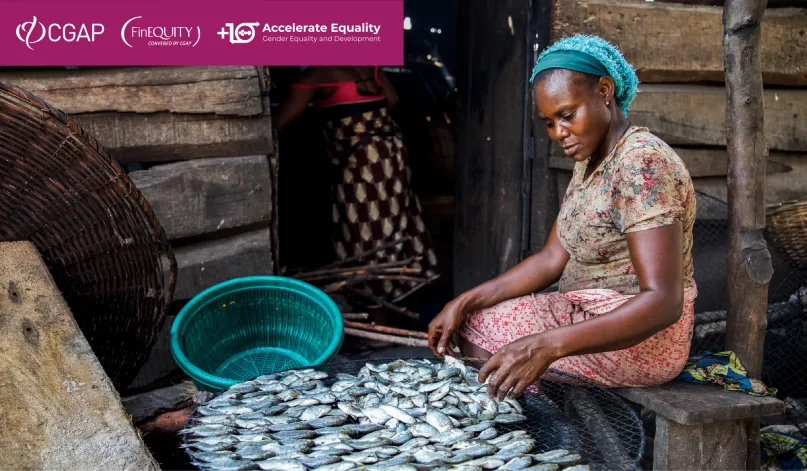
Restrictive gender norms are often the root cause of persistent gender inequality in the financial market system and ignoring them can limit the effectiveness and impact of financial inclusion interventions. For example, collective expectations around childcare and household responsibility mean women spend significant amounts of time on unpaid care and domestic work (e.g., cooking, cleaning, caring for children and elders), limiting their time for other “productive” activities such as operating and expanding a business. If they do find time to operate a business, financial service providers (FSPs) may not consider women bankable based on assumptions about the size and profitability of their businesses or personal perceptions that “women are risk averse.” These assumptions result from comparing women directly to men, as opposed to considering how gender norms that prioritize women as caregivers and men as owners of land and other assets restrict women economically. Similarly, other areas in financial market systems (I.e., banking regulations and policies payment platforms, agent networks, other financial services and infrastructure) may appear to be gender-neutral but in reality are not, as they fail to consider that women may not have the same capacities and choices as men due to limited mobility or a disproportionate care burden.
Any efforts to create gender equitable financial market systems that can increase women’s financial inclusion (WFI) and facilitate women’s economic empowerment (WEE) need to start with an understanding of how gender norms shape the behavior of all system actors and then, based on this understanding, design interventions that seek behavior change at multiple levels – including at the community and household level, with FSPs, support service providers and policymakers.
CGAP recently published the “Addressing Gender Norms in Financial Inclusion: Designing for Impact” guide which provides guidance to funders and facilitators on design and implementation of interventions that increase women’s financial inclusion and economic empowerment by taking gender norms into account.
This webinar, hosted by CGAP and FinEquity as part of the World Bank Group's Gender Equality and Development +10: Accelerate Equality initiative, saw funders and facilitators share how they diagnose gender norms that impact women’s financial inclusion and economic empowerment in specific country contexts, and how they use these insights to shape their strategies to create a more gender-equitable financial system.
Related Resources:
- Addressing Gender Norms to Increase Financial Inclusion: Designing for Impact (CGAP)
- The Pandemic Wake-Up Call: Gender Norms Matter in Financial Inclusion
- Can Funders Afford to Ignore Gender Norms in Financial Inclusion? (CGAP Blog)
- A Collaborative Effort to Diagnose the Effect of Social Norms on Women's Financial Inclusion (FinEquity Blog)
- Joint Programme on Gender Transformative Approaches for Food Security and Nutrition (JPGTA)
- Compendium of good practice on Gender transformative approaches (JPGTA)
- Women’s Financial Inclusion Toolkit (GIZ)
- Her and Now Short Films trailers (GIZ)
- Gendered social norms – Hiding in plain sight: Exploring how social norms impact financial health outcomes for women (UNCDF Blog – Part 1)
- Gendered social norms – Hiding in plain sight: Exploring how social norms impact financial health outcomes for women ((UNCDF Blog - Part-2)
- Uncovering the Hidden Cost of Gender Biases in Lending to Women (IDB Invest)

This event is part of the World Bank Group’s yearlong Gender Equality and Development +10: Accelerate Equality initiative, which explores the important progress made and lessons learned over the last 10 years in closing gender gaps and promoting girl's and women's empowerment and drives for transformative change in the future.
It provides an opportunity to showcase successes, learn, and develop ideas and further momentum for the future of gender equality and women’s leadership, while taking stock of remaining challenges and strengthening partnerships in the quest to #AccelerateEquality.
About this event
Online
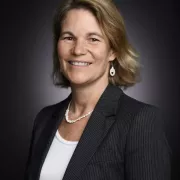
Sophie Sirtaine
Sophie Sirtaine, a Belgian national, is CGAP’s CEO. She is responsible for leading the CGAP operational team to develop, resource, and deliver CGAP’s 5-year strategy. She is also a member of CGAP’s Executive Committee. With over twenty years of experience in the World Bank, Sophie has held various positions including as Director of Strategy and Operations in the Independent Evaluation Group of the World Bank Group from 2016-2021 and as country director for Latin America and the Caribbean from 2013-2016. She also worked in South Asia, and the Europe and Central Asia regions; the Corporate Secretariat; and the Operations, Policy and Country Services Vice Presidency of the World Bank Group. Among others, she led the World Bank’s banking sector crisis response in several EU countries during the 2008-2009 global financial crisis. Sophie also worked in London in investment banking at JP Morgan and as an infrastructure economist for Halcrow Fox and Associates prior to joining the World Bank
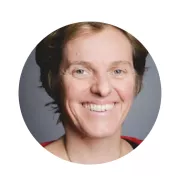
Antonique Koning
Antonique Koning has more than 20 years of experience working on a range of topics related to microfinance and financial inclusion and currently serves as CGAP’s Gender Lead. Antonique has expertise in consumer protection and responsible finance, customer centricity and empowerment. She is also involved in CGAP’s member engagement. Antonique led CGAP’s work on customer protection and value and is a contributor to CGAP’s Customer Centric Guide. She has strong experience in program management and coordination, having led CGAP’s Africa team and managed a Euro 15 million capacity-building program for microfinance actors in Africa, the Caribbean, and the Pacific Islands. Before joining CGAP in 2004, she gained hands-on experience developing and implementing microcredit programs in El Salvador and working with savings banks globally. Antonique has a Master’s degree in International Trade Management and Policy from the University of Birmingham and a Master’s degree in Applied Economics from the Katholieke Universiteit Leuven. She is based in Belgium, and speaks Spanish, French, and Dutch.
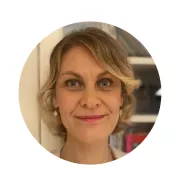
Hajnalka Petrics
Hajnalka is a Programme Officer (Gender Equality and Women's Empowerment) at FAO and the Global Coordinator of the United Nations Rome-based Agencies (RBAs)-European Union (EU) Joint Programme on Gender Transformative Approaches for Food Security and Nutrition, funded by the European Union. Previously, in her role as Gender and Development Officer, she led FAO’s work on gender-responsive rural advisory services as well as CEDAW implementation and related policy assistance. Hajnalka has played a key role in and provided technical support to global policy processes (e.g., the development of the CEDAW General Recommendation 34 on the rights of rural women) and the work of the Committee on World food Security (CFS) on Gender Equality and Women’s Empowerment. Prior to joining FAO headquarters, Hajnalka worked as Rural Development and Gender Technical Officer in the FAO Regional Office for Europe and Central Asia (REU). She holds a PhD in International Cooperation and Sustainable Development Policies and an MA in Political Science from the University of Bologna. Hajnalka was a visiting researcher at the Rural Sociology Group of the Wageningen University and Research Centre.
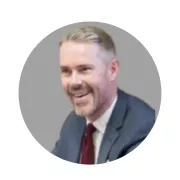
Klaus Prochaska
Klaus Prochaska is Head of Financial Systems Development at GIZ. He has worked on financial sector development for fifteen years focusing on financial inclusion, digital financial services, financial sector policy, and sustainable finance. He previously held positions with CGAP, the Alliance for Financial Inclusion and Telenor. Klaus has lived in Austria, Germany, Laos, Thailand, Malaysia and the United States. He holds a law degree from the University of Vienna and a Master’s Degree in International Relations from Johns Hopkins School of Advanced International Studies (SAIS).
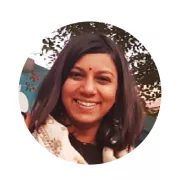
Ankita Singh
Ankita is a research and learning practitioner at UNCDF with a focus on building narratives driven by evidence and storytelling. Through context-led research, she unboxes opportunities to design solutions that work for low-income populations. Over the last 10 years, she has engaged extensively in exploratory and evaluative research on livelihood, financial health, natural resource management, and gendered social norms with women, adolescents and smallholder farmers.